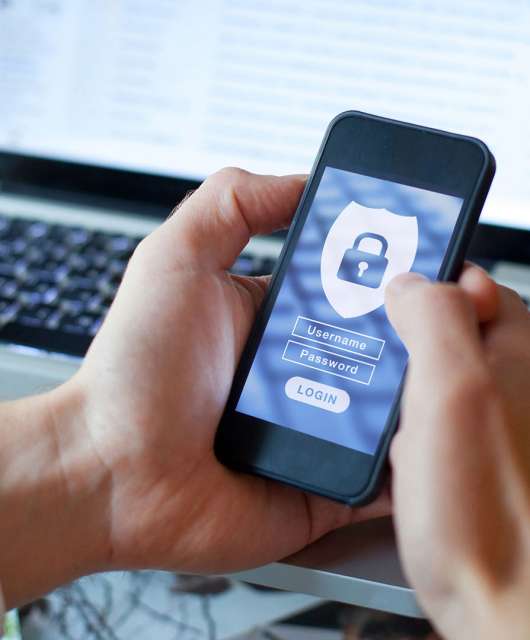As a parent, it’s hard to keep track of what your child is up to at all times of the day. It becomes even more difficult when they start creating an identity online. While an online presence can encourage social connections, create a sense of belonging, allow creativity and enhance globalization, it can also have negative effects. A kid’s false sense of security online can lead to cyberbullying and other malicious actions.
Key Findings
- 76% of parents report that their child hasn’t been cyberbullied to their knowledge.
- 41% of parents have never had a conversation with their child about cyberbullying.
- More than half of parents would reach out to the bully’s parents but only 24% would reach out to the bully directly.
- 89% of US parents reported regulating their child’s online activity.
Kids Are Cyberbullied While Parents Are Unaware
A 2019 study by the Cyberbullying Research Center found that 37% of students aged 12–17 had been cyberbullied. 30% of these students had been victims of cyberbullying more than once. Other sources report even higher numbers. The National Crime Prevention Center reports that 43% of teens were victims of cyberbullying in the last year and Pew Research Center found that 59% of teens have been a target of cyberbullying.
Even with so many kids affected, cyberbullying is something that parents aren’t always aware of. We asked parents if, to their knowledge, their child has been cyberbullied. Only 24% responded yes. The remaining 76% of parents reported their child hasn’t been cyberbullied.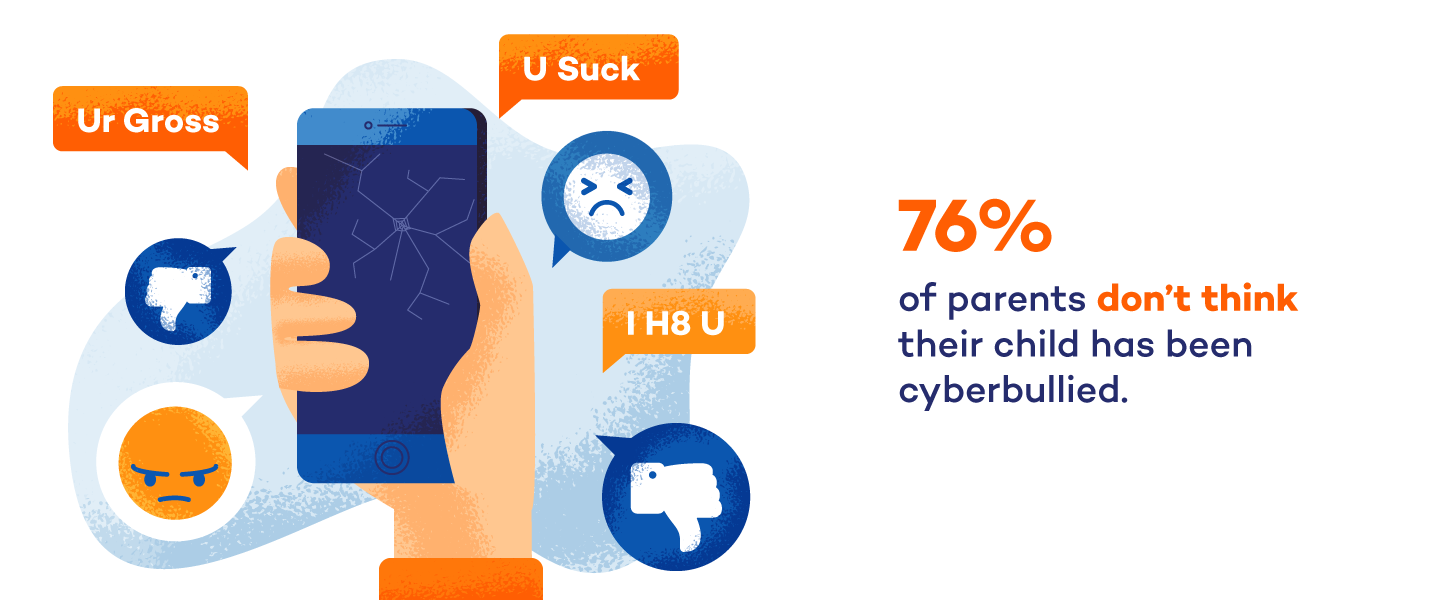
Bullied kids aren’t always forthcoming with the details of online harassment. The National Crime Prevention Center reported that only 11 percent of teens had talked to their parents about incidents of cyberbullying. A few factors cause this silence.
5 Reasons Kids Don’t Report Cyberbullying
1. Fear of Retaliation
When being bullied online, kids are hesitant to seek help because they fear retaliation from the bully and their peers. Kids would rather keep quiet so they aren’t labeled as a snitch. By tattling, they could also face in-person retaliation at school the following day.
2. Don’t Recognize Bullying
Kids may not be able to identify online interactions as cyberbullying. Some variations include offensive name-calling, the spread of false rumors, receiving unwanted explicit images, and being harassed about where they are or what they are doing by someone who isn’t a parent. It’s important to educate kids on the types of online harassment so that they know to report it.
3. Feel Ashamed
Bullying creates a power struggle that can leave the victim feeling weak, ashamed and embarrassed. If they’re being bullied for something they’re already insecure about, like physical attributes, these feelings are magnified and they’re less inclined to tell an adult.
4. Unsure of Adult’s Reaction
Another reason kids don’t tell their parents about bullying is that they are afraid of the reaction. They think they should be tough and try to handle it themselves
In addition, a common punishment among parents is to take away electronic privileges. 65% of parents have taken away teen’s cell phone or internet privileges as punishment. Kids are afraid this will be the response and don’t want to take the chance of losing their online life.
5. Think No One Will Believe Them or Help
Last but not least, they believe that no one will understand or help them. These individuals feel that opening up to an adult won’t do any good and no helpful actions will be taken.
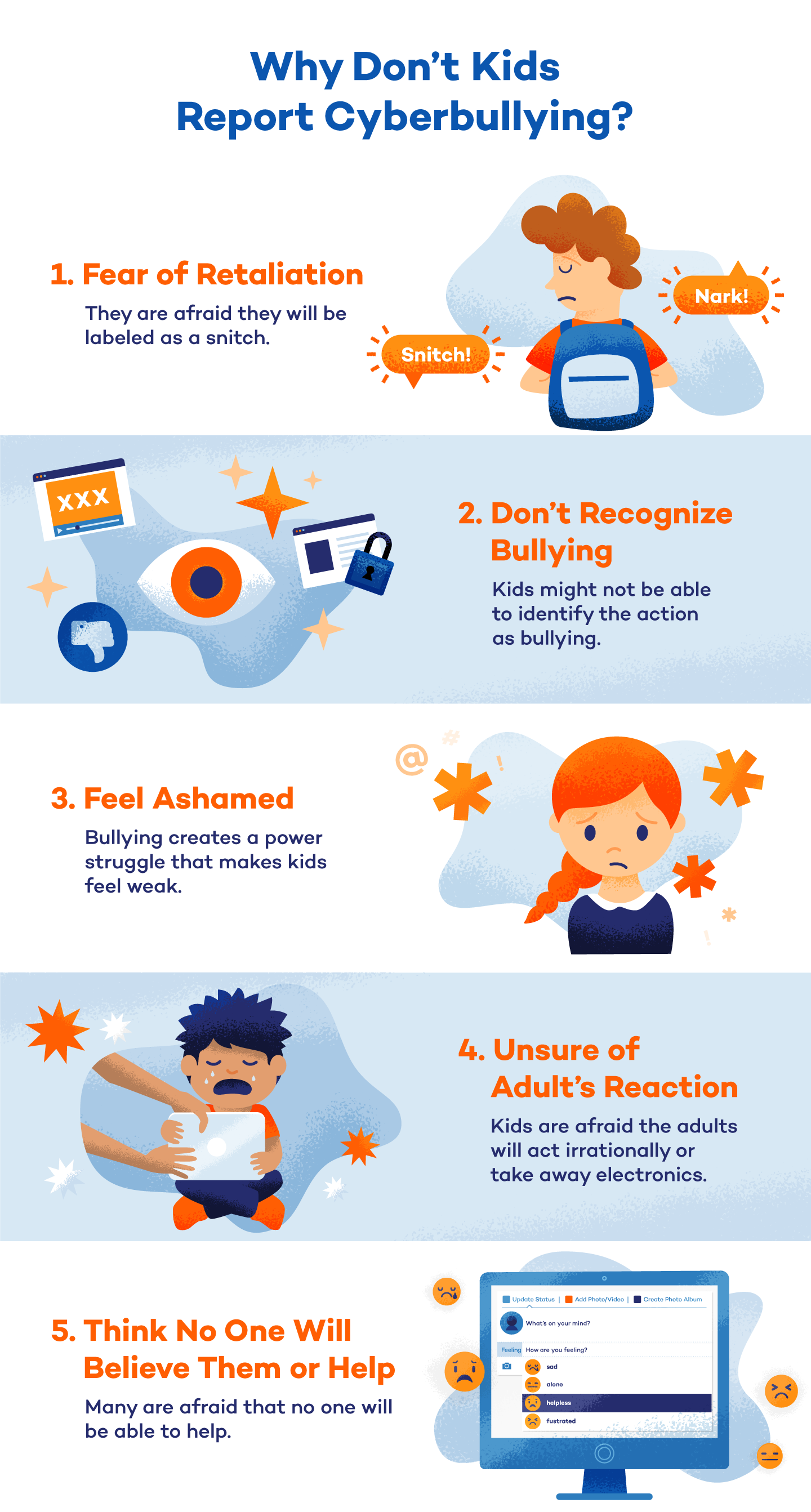
Although kids may think they are alone, this is not true. Parents are eager to take action if their kid is bullied online. When asked what action they would take if their child were being cyberbullied, less than one percent reported that they wouldn’t take action.
73% of parents said they would block the bully’s profile, 56% would report them to the social platform and 50% would file a complaint with the school. While 58% of parents would reach out to the bully’s parents, only 24% would reach out to the bully directly.
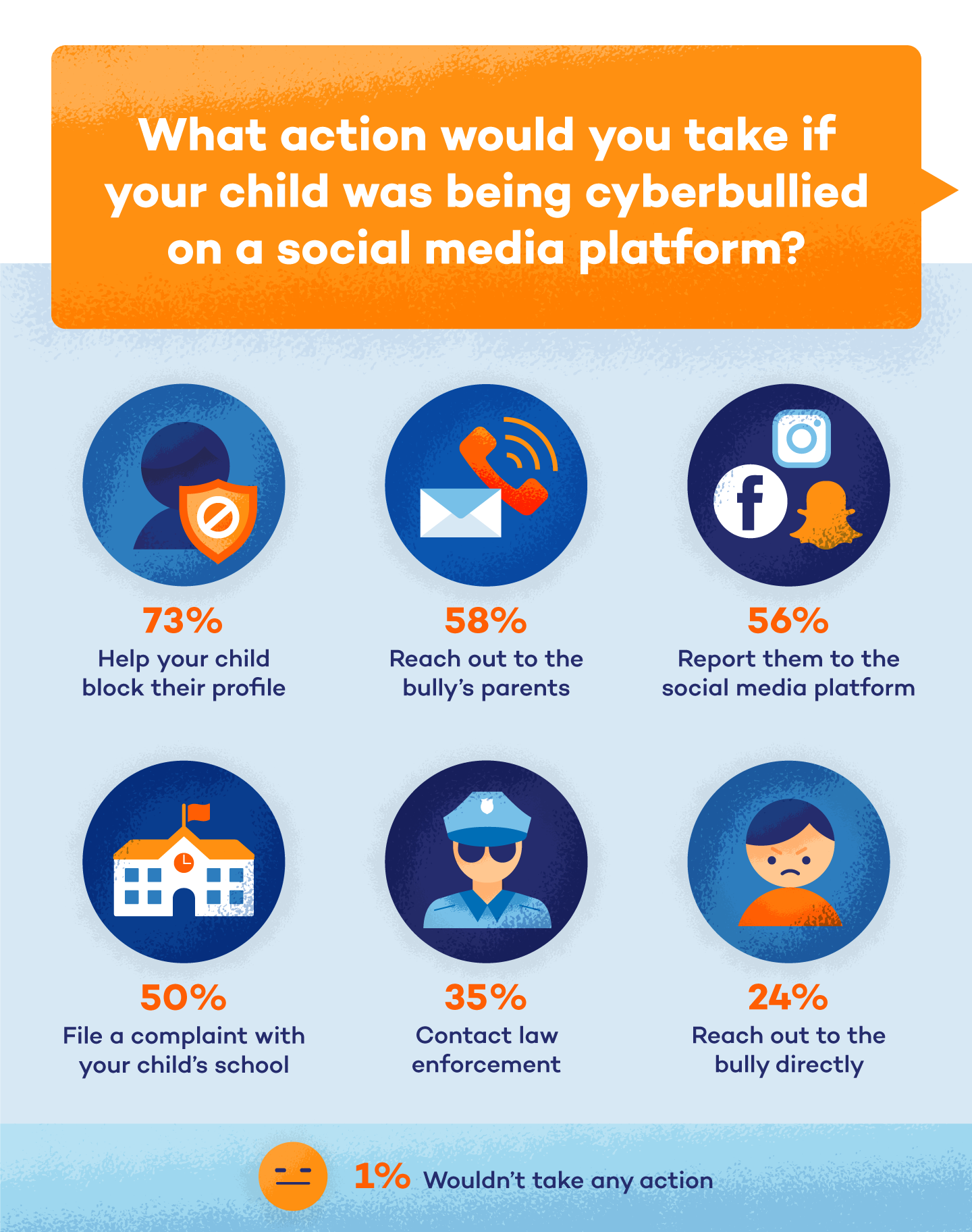
The Importance of Having an Open Conversation
This clear gap between what children think will happen if they report bullying and what parents would actually do can be closed with the use of conversation. Many parents aren’t initiating an open discussion about cyberbullying. 41% of parents have never had a conversation with their child about bullying. Of these parents who haven’t had a conversation with their kids about cyberbullying, 51% were dads and 65% were moms.
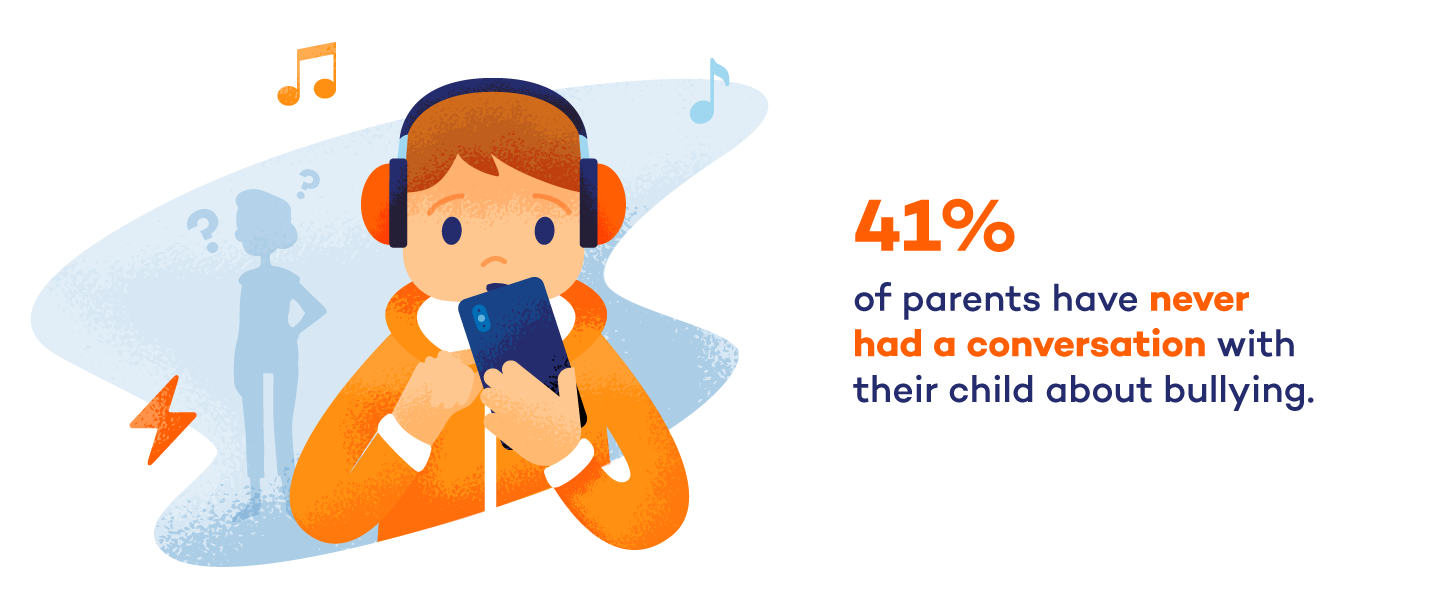
While parents aren’t inclined to discuss cyberbullying, a majority will regulate their child’s online activity. 89% of US parents reported regulating their child’s online activity. A majority of them do this by reviewing social media accounts and online activity, using monitoring software or creating internet usage rules.
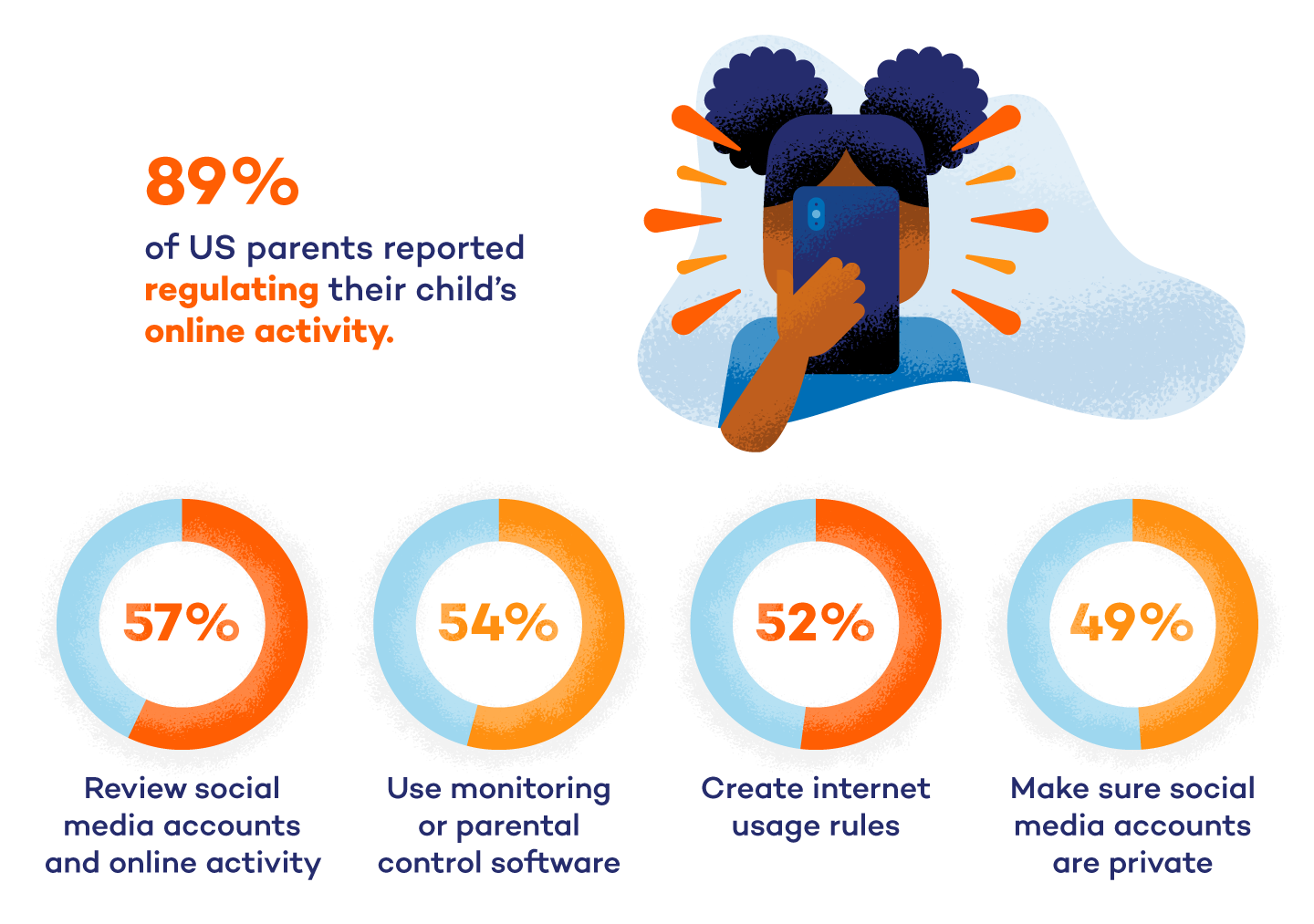
Parents should take preventative measures when it comes to bullying. A simple conversation can make all the difference.
Tips for Having a Conversation About Cyberbullying
Rather than having one long lecture, try bringing up the topic of bullying in a few different conversations. Here are some tips for having those discussions.
- Open up a discussion by asking if they’re aware of the rise in cyberbullying and mention an article or story you’ve heard of.
- Create a dialogue about what cyberbullying is and examples you’ve witnessed or heard of.
- Ask if they’ve witnessed cyberbullying before. You don’t need to directly ask if they’ve been cyberbullied, but this creates the opportunity for them to open up about their experience.
- Assure them that if it were to happen to them, you would want to know so that you can support them.
- Let them know your policy on cyberbullying. What would you do if your child was cyberbullied? What would you do if your child was a cyberbully?
- Emphasize the importance of device security. Technology is a privilege that needs to be used safely and securely.
- Be open about how you plan to monitor their online activity and why you are doing it.
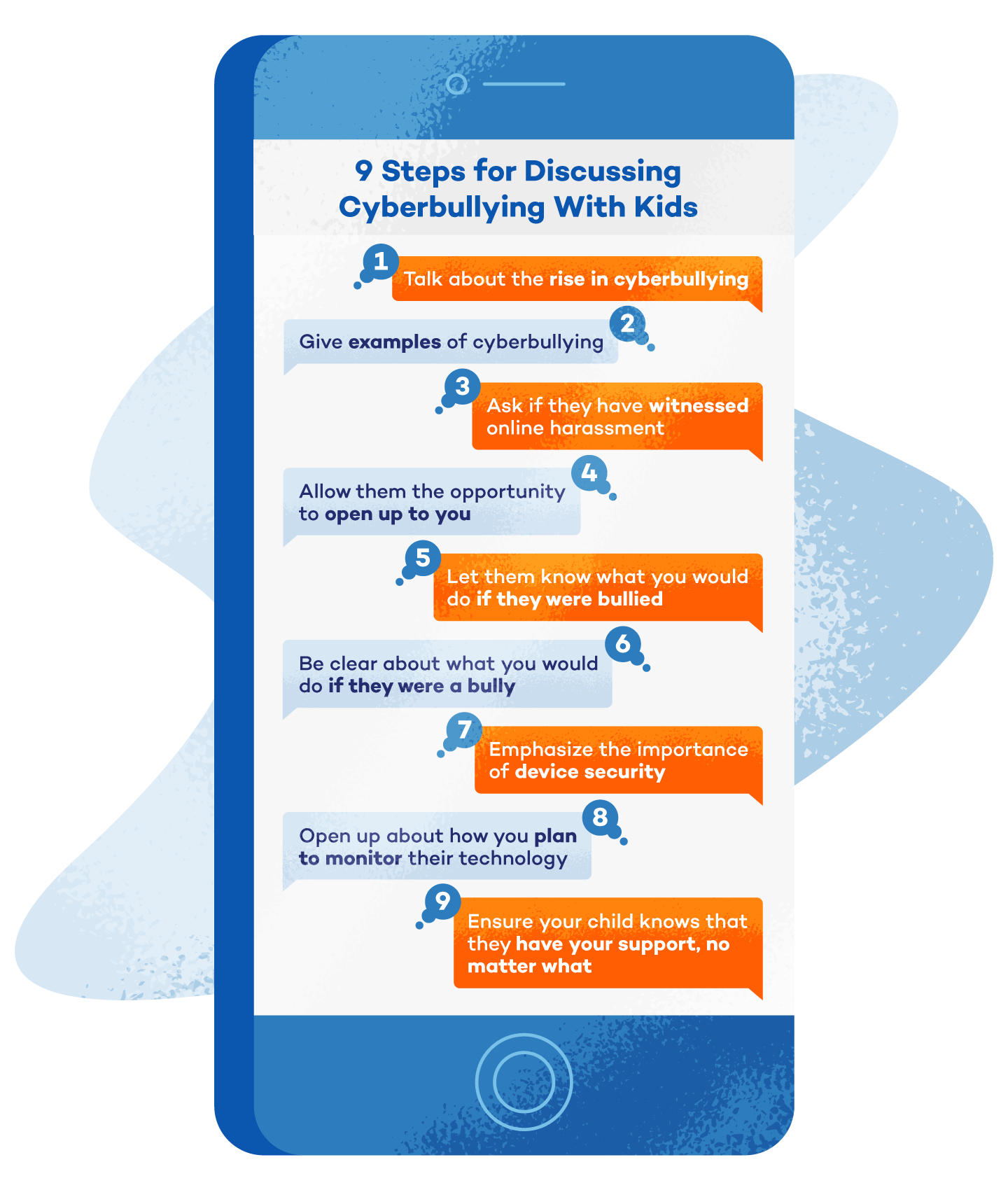
Once you’ve had a conversation with your kids about cyberbullying, you can move onto ensuring you have the proper regulations set up. Monitoring software such as Panda Dome Family will allow you to access reports of application usage, block dangerous apps and games, have geolocation alerts, utilize a panic button that will alert parents of their kid’s location and delete data remotely in case of a stolen device. These features can help you monitor if your kids are using their devices safely and will indicate when you should step in and have a conversation.
Methodology
This study consisted of four survey questions conducted using Survey Monkey. The sample consisted of no less than 300 completed responses by individuals who reported having kids. The margin of error is 6%. This survey ran during September 2019.
Additional resources:



